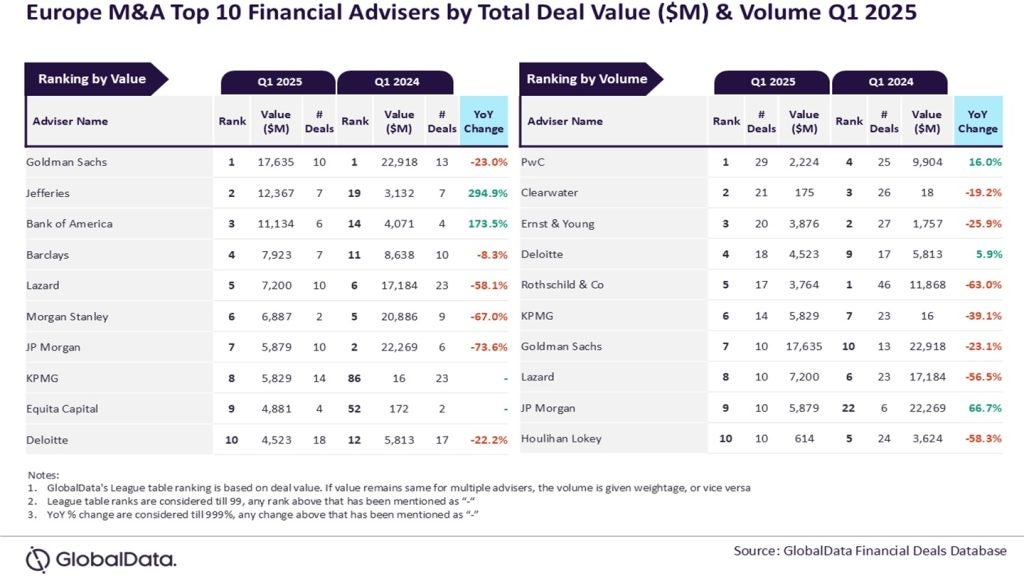
AI’s Role in Transforming Private Banking
Artificial intelligence (AI) is coming into the world in a big way. Always an area of intrigue since sci fi was a genre, the launch of ChatGPT has placed it firmly in the spotlight. But how will AI change a relationship business like private banking? Patrick Brusnahan writes
According to Professor Stephen Hawking in an interview with the BBC: “The development of full artificial intelligence could spell the end of the human race… It would take off on its own, and re-design itself at an ever-increasing rate. Humans, who are limited by slow biological evolution, couldn’t compete, and would be superseded.”
While this may seem overdramatic, the impact of AI cannot be underestimated.
Speaking to PBI, Joseph Twigg, CEO of Aveni, says: “One thing that needs to land with companies is that relatively big change is coming. The impact that this tech is going to have on the way people work is on the same pedestal as the internet.”
Aveni, private banking and AI
Aveni describes itself as “an NLP shop designed for financial services”. It focuses on natural language processing and how that can speed up processes within financial services. This is where AI can come in.
According to Twigg: “When you’re designing AI solutions, you’ve got to design them to solve specific problems. Otherwise, they’re never going to quite hit the spot.”
He continues: “We will see that more clearly than ever. With the current environment, ChatGPT and the impact that’s going to have with a lot of daily tasks. However, it will not resolve to end any specific challenge within private banking.
“A good example is you can get ChatGPT to summarise a meeting or generate a report from the back of a meeting.”
Relationships
Private banking is very much a relationship business and people fear AI could take that away. On the other hand, it is nowhere near as simple as that.
Speaking to PBI, Chris Ciompi, chief marketing officer at Clarity AI states: “We haven’t seen pushback. And I would attribute that mainly to us not just giving them the answer. We are helping to shape their conviction.”
Are there worries? He adds: “I think that if you lead only with AI, then yes, there is a concern that the machine is making the decisions. But the reality is that we like many other AI companies, we have a team of experts who are not just data scientists working to train the machines and teach the machines, but we also have a team of experts who are creating the methodologies that then populates with information, but it is the humans who are firmly in control of what’s happening.”
Twigg says: “The thing to think about is AI is not going to come and take their job, but a person using AI is going to come and take their job.
“That is a really important mindset for people to grasp.”
It is not a replacement, but an enhancement. “If you want like talking to client, you can still talk to clients” but AI allows an adviser or wealth manager to speak to five a day rather than two.
“It’s a moment of change and people’s attitudes are probably going to have to shift,” adds Twigg.
This is not the first time private banking relationships have felt threatened. Robo-advisers are a big trend at the moment, but Twigg does not rate them too highly or at least not yet.
He explains: “We’re not trying to automate out humans. Why did robo-advisers fail so badly? It’s because people want to speak to people when they’re making material life choices. People are not confident enough to trust systems at a crucial moment.”
Schroders Personal Wealth (SPW), a joint venture between Schroders and Lloyds Banking Group, chose Aveni to improve its compliance capabilities.
Under the tie-up, SPW will use Aveni’s AI-based platform, Aveni Detect, to supervise interactions with customers and create data-driven compliance evidence.
Twigg states: “Schroders have lofty growth ambitions. They have a relationship with Lloyds and access to a significant proportion of the UK market via that relationship.
“SPW has been, over the last couple of years, putting in place a process in their infrastructure that supports automation. The relationship with Aveni is the first steps of realising the value of AI and NLP driven automation.
“If you’re looking to scale a national advice business, you’ve got to look across the whole business, not just advisers. If I’ve got 300 advisors and ten People in compliance monitoring, if I have 3000 advisers, do I need 100 People in compliance monitoring?”
Crypto and digital assets
In 2021, more family offices were invested in cryptocurrencies than before, with 26% invested compared to 16%.
However, only 12% showed interest in investing in the future, a significant decrease from the 45% previously interested.
This decrease may be related to the high volatility of the crypto market in the past year, as 62% of family offices reported being neither invested in nor interested in crypto in the future, up from 39%.
The digital assets ecosystem is a significant area of interest, particularly for family offices. 32% of family offices have invested in digital assets, with the most common reason being their trust in the potential of blockchain technology.
Regulation
What about regulation? The hindrance to evolution and development is the rules, so what are they when it comes to AI?
Hani Hagras, chief science officer at Temenos, tells PBI: “Right now, AI is close to unregulated. This is a big problem because any kind of industrial revolution that has come has always come with safeguards. When electricity was invented, it didn’t arrive with naked wires and transformers all over the place.”
Twigg warns: “We’re not regulated and that was fine. You would get one or two questionable AI propositions that could have a direct impact on the end consumer. But typically, they will go into the FCA’s sandbox and not come out.
“Now, you’re talking about hundreds of generative AI start-ups that will emerge over the next 12 to 18 months, that are doing things with technology that the regulator doesn’t understand and will not be able to regulate in the traditional sense. They’re going to have to make some big decisions.”








